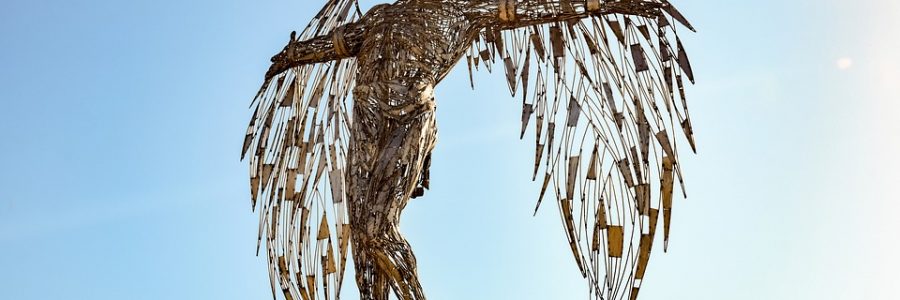Ruth E. Walker
Last week, I was watching a TVO documentary “Art Detectives” about experts in art and history who team up to find undiscovered treasures, and it reminded me of a Top Drawer post I wrote five years ago. I took a quick look and discovered how remarkably current it still is.
Like my “Art Detectives”, I focused on Pieter Bruegel’s Landscape with the Fall of Icarus that, at one point, was the subject of scrutiny thinking it might not be his work. But in the context of our current lives, the provenance of the art seems of less importance than its subject.
The painting and the various poems, plays and books it has inspired is about how terrible things happen in the middle of ordinary days and that life just carries on. And how framing that everyday reality into words–searingly brilliant words–is the work of the writer.
Given how we were all going about our plans: trips, family gatherings, dining in restaurants, sitting in classrooms, taking in a play or movie, grocery shopping without thought of physical distancing…and then, we were not. Could not. Not as we once did.
Some of us took longer than others but eventually, most of us shifted into this “new normal.” And life continues–albeit altered in large and small ways. So with that in mind, and with W.H. Auden’s beautiful poem underpinning the many, many losses of the past 20 months, I offer up this post from the past.
October 2016
A friend and fellow writer posted an excerpt from a poem on Facebook. It happens to be one of my favourites, W.H. Auden’s “Museé des Beaux-Arts.” Like so many poems, it is a take on one aspect of the human condition. How truly awful things happen to people at the same time most of the world is going about their ordinary lives.
His opening lines set the tone:
About suffering they were never wrong,
The old Masters: how well they understood
Its human position: how it takes place
While someone else is eating or opening a window or just walking dully along;
On the surface, Auden is talking about those great old Master painters — Rembrandt, Vermeer and Caravaggio, among them — how they understood the contradictions of life. In the poem, he focuses on a famous painting by Pieter Bruegel the Elder, “Landscape with the Fall of Icarus.”
In this tragic snippet from Greek mythology, with a pair of wings held together by string and wax, poor fated Icarus flew too close to the sun. The wax melted. The feathers fell apart. And Icarus landed in the sea. Great story inspires great poetry. (See also poet William Carlos Williams for his equally gorgeous take on the tragedy.)
I’m not going to discuss Auden’s poem, which is a masterpiece of subtlety. I’m going to talk about the painting which, for years, has hung in the Royal Museum of Fine Arts of Belgium, touted as a masterwork by Pieter Bruegel, the Elder.
They might have made a mistake. Or not.
There are inconsistencies that call into question if this painting is actually Bruegel’s work. There have been suggestions that perhaps it’s an excellent copy of the original, likely by a very talented student, perhaps even Pieter Bruegel the Younger.
Studies show it was likely a painted wood panel, probably by Bruegel, that was later transposed onto canvas. Somebody had to do a lot of over-painting to cover up what didn’t survive the move. Over the decades, this painting has been radiocarbon dated, scanned by electron microscope, zapped by energy dispersive X-ray spectroscopy (whatever that is) and had the charcoal under-drawing examined by infrared reflectography. (Don’t ask.)
Yup. It’s a Bruegel alright. We think. Pretty much. His. Maybe.
Is the painting and the poetry it inspired any less marvellous for all its controversy-inspiring history? Of course, it is vital for art historians and museums of art to know as much as possible about the treasures in their care. It’s more than placing value (though that is an obvious factor) — it’s about the life story of the art, its provenance.
But for those of us who are inspired by beautiful art, and especially work that offers a ticket to inspiration, the who really made that part of the equation is secondary. Auden’s poem is no less brilliant if it wasn’t really Bruegel’s painting. Williams’ poem would still move me to tears.
And that painting, it’s haunted me for years. Not because I didn’t know who painted it but because of those pale white legs, way off in the bottom corner and flailing just above the surface, desperate yet completely ignored. The farmer tilling his soil. The shepherd looking off in the opposite direction. The angler, mere feet away, just working at getting a catch. The lovely ship, sailing past into the harbour…
It’s the human condition that inspires my art. Our crazy, conflicted selves who can feel compassion and contribute money and goods to help those suffering in never-ending senseless wars. And who can, that same day, head out for popcorn and a movie that glorifies shoot ’em up scenarios and terrorist car bombs. (This, of course, includes me. I am human, after all.)
We make no sense, really. Capable of stunning and original art in so many forms: music, dance, theatre, film, painting, sculpture, textiles, multi-media and yes, literature. All of our art is an overwhelming rainbow of style, voice and technique. At the same time, we are cold, cruel and self-centered.
In life, we are constantly flying too close to the sun and forgetting the rest of the world. This contradiction, this puzzle of what makes us spectacular and despicable at the same time, this is a big part of what drives me to write.
And imagine, this post came to me because my friend, artist and poet Ingrid Ruthig, posted a snippet of a poem on her Facebook page. So what inspires you to make words on the page?
Did You Know?
If you’d like to see one of Bruegel the Elder’s painting up close without taking a trip to Belgium, check out this YouTube video of how Google’s art project captured a digitized image of “The Fall of the Rebel Angels” (1502).






I do so enjoy your regular Writescape blogs, which I often file away for rereading later.
But I have a problem – you recently posted advice on how to read aloud to others your own stories, which happens to be very pertinent to my own situation just now.
So I’m SURE I filed that blog carefully but now can’t find it anywhere – would be most grateful if you could email me a copy. Many, many thanks!
.
Hi Margaret,
I think the post you are looking for was our most recent 10 on the 10th offering “Ten Tips for a Successful Live Reading” https://writescape.ca/site/wp-admin/post.php?post=13964&action=edit
You might also like an older post from our archives, “If you Read it, They will Listen. https://writescape.ca/site/2018/07/if-you-read-it-they-will-listen/
Good luck with your reading.
Gwynn